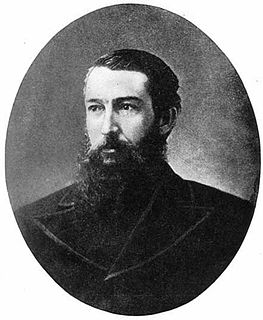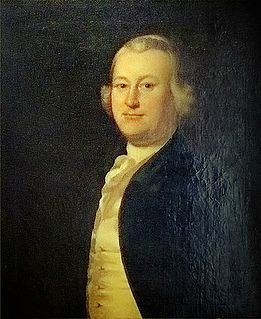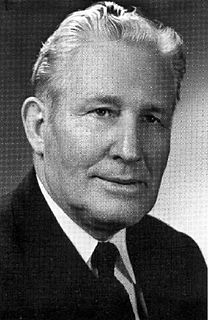Top 147 Writ Quotes & Sayings - Page 3
Explore popular Writ quotes.
Last updated on November 24, 2024.
Here the only genuine conflict is between true believers. Of a given text in Holy Writ one faction may say this thing and another that, but both agree unreservedly that the text itself is impeccable, and neither in the midst of the most violent disputation would venture to accuse the other of doubt. To call a man a doubter in these parts is equal to accusing him of cannibalism. Even the infidel Scopes himself is not charged with any such infamy.
It is hard living down the tempers we are born with. We all begin well, for in our youth there is nothing we are more intolerant of than our own sins writ large in others and we fight them fiercely in ourselves; but we grow old and we see that these our sins are of all sins the really harmless ones to own, nay that they give a charm to any character, and so our struggle with them dies away.
I am easily moved to tears and rarely survive a visit to the cinema without shedding them, racked, as I am, by the most perfunctory, meretricious or even callously sentimental attempts at poignancy (something about the exterior of the human face, so vast and palpable, with the eyes and the lips: it is all writ too large for me, too immediate for me.)
We do not have any respect, let alone reverence, for the world of nature because we do not have any respect, let alone reverence, for ourselves. It is because we cripple and mutilate ourselves that we cripple and mutilate everything else as well. Our contemporary crisis is really our own depravity writ large.
Let me not to the marriage of true minds
Admit impediments. Love is not love
Which alters when it alteration finds,
Or bends with the remover to remove:
O no! it is an ever-fixed mark
That looks on tempests and is never shaken;
It is the star to every wandering bark,
Whose worth's unknown, although his height be taken.
Love's not Time's fool, though rosy lips and cheeks
Within his bending sickle's compass come:
Love alters not with his brief hours and weeks,
But bears it out even to the edge of doom.
If this be error and upon me proved,
I never writ, nor no man ever loved.
For in a government of laws and not of men, no man, however prominent or powerful, and no mob however unruly or boisterous, is entitled to defy a court of law. If this country should ever reach the point where any man or group of men by force or threat of force could long defy the commands of our court and our Constitution, then no law would stand free from doubt, no judge would be sure of his writ, and no citizen would be safe from his neighbors.
But Thee, but Thee, O sovereign Seer of time,
But Thee, O poets' Poet, Wisdom's Tongue,
But Thee, O man's best Man, O love's best Love,
O perfect life in perfect labor writ,
O all men's Comrade, Servant, King, or Priest, --
What IF or YET, what mole, what flaw, what lapse,
What least defect or shadow of defect,
What rumor, tattled by an enemy,
Of inference loose, what lack of grace
Even in torture's grasp, or sleep's, or death's --
Oh, what amiss may I forgive in Thee,
Jesus, good Paragon, Thou Crystal Christ?
Put very simply, Satan's power in the world is everywhere. Yet wherever men and women walk in the Spirit, sensitive to the anointing they have from God, that power of his just evaporates. There is a line drawn by God, a boundary where by virtue of his own very presence Satan's writ does not run. Let God but occupy all the space himself, and what room is left for the evil one?
I've already written a section in the annual report for next year explaining why I think in one case that the figures on our balance sheet as calculated are wrong. But it's the standard way of doing it. It's holy writ. The SEC wants us to do it that way, and we'll do it that way, and I'll explain why I think it's wrong and shareholders can read it and see whether they agree with my logic or don't.
Harvey sought for truth in Truth's own book- Creation - which by God himself was writ;And wisely thought 'twas fitNot to read comments only upon it,But on th' original itself to look.Methinks in Art's great circle others standLock'd up together hand in hand:Every one leads as he is led,The same bare path they tread,A dance like that of Fairies, a fantastic round,With neither change of motion nor of ground.Had Harvey to this road confined his wit,His noble circle of the blood had been untrodden yet.
Zen is to religion what a Japanese "rock garden" is to a garden. Zen knows no god, no afterlife, no good and no evil, as the rock-garden knows no flowers, herbs or shrubs. It has no doctrine or holy writ: its teaching is transmitted mainly in the form of parables as ambiguous as the pebbles in the rock-garden which symbolise now a mountain, now a fleeting tiger. When a disciple asks "What is Zen?", the master's traditional answer is "Three pounds of flax" or "A decaying noodle" or "A toilet stick" or a whack on the pupil's head.
I went to the Garden of Love, And saw what I never had seen: A Chapel was built in the midst, Where I used to play on the green. And the gates of this Chapel were shut, And 'Thou shalt not' writ over the door; So I turn'd to the Garden of Love, That so many sweet flowers bore. And I saw it was filled with graves, And tomb-stones where flowers should be: And Priests in black gowns, were walking their rounds, And binding with briars, my joys & desires.
Sacred Scripture, since it has no science above itself, can dispute with one who denies its principles only if the opponent admits some at least of the truths obtained through divine revelation; thus we can argue with heretics from texts in Holy Writ, and against those who deny one article of faith we can argue from another. If our opponent believes nothing of divine revelation, there is no longer any means of proving the articles of faith by reasoning, but only of answering his objections - if he has any - against faith.
O, but they say, the tongues of dying men enforce attention, like deep harmony: where words are scarce, they are seldom spent in vain: for they breathe truth, that breathe their words in pain. he, that no more must say, is listened more than they whom youth and ease have taught to gloze; more are men's ends marked, than their lives before: the setting sun, and music at the close, as the last taste of sweets, is sweetest last; writ in rememberance more than things long past
If the federal constitution is to be construed so far in connection with the state constitutions, as to leave the trial by jury in civil causes, for instance, secured; on the same principles it would have left the trial by jury in criminal causes, the benefits of the writ of habeas corpus, etc. secured; they all stand on the same footing; they are the common rights of Americans, and have been recognized by the state constitutions.
When the tribal groups of december trade
Seated in the figure of crocodile
And songs are sung and deals discussed, are made
Real. All... For more than one reason they smile.
These codes are writ in secret, feeling fine
To keep what's private to my self since we
All must face our maker in our own ryhme
And reasons for being ( from regrets) free
So let the memory of your glory
Be the tenderness heartfelt love starkly
In the sky of my mind vast and pretty
Evermore glittering simplicity
Where in the truth of country grows sober
And sunshines through fog to radiate wonder
And I take this opportunity to declare, that... I will to my dying day oppose with all the powers and faculties God has given me, all such instruments of slavery on the one hand, and villainy on the other, as this writ of assistance is. It appears to me the worst instrument of arbitrary power, - the most destructive of English liberty and the fundamental principles of law, that ever was found in an English law book.
No longer mourn for me when I am dead than you shall hear the surly sullen bell give warning to the world that I am fled from this vile world with vilest worms to dwell: nay, if you read this line, remember not the hand that writ it, for I love you so, that I in your sweet thoughts would be forgot, if thinking on me then should make you woe. O! if, I say, you look upon this verse when I perhaps compounded am with clay, do not so much as my poor name rehearse; but let your love even with my life decay; lest the wise world should look into your moan, and mock you with me after I am gone.
Prophecy and history predict and record a great and universal apostasy which was to be followed by a restoration as predicted by John in Revelation. The fact of the great apostasy is attested by both sacred and secular writ, and history bears witness that it became universal. We proclaim this fact of history not as an attack on any church. We do not assume any position of "holier than thou" or "wiser than thou," but we announce this historic fact of the apostasy as a vindication of the claim that there has been in fact a restoration of the gospel.
Chance never writ a legible book; chance never built a fair house; chance never drew a neat picture; it never did any of these things, nor ever will; nor can it be without absurdity supposed able to do them; which yet are works very gross and rude, very easy and feasible, as it were, in comparison to the production of a flower or a tree.
Children should be encouraged to search out in nature the objects that illustrate Bible teachings, and to trace in the Bible the similitudes drawn from nature. They should search out, both in nature and in Holy Writ, every object representing Christ, and those also that He employed in illustrating truth. Thus may they learn to see Him in tree and vine, in lily and rose, in sun and star. They may learn to hear His voice in the song of birds, in the sighing of the trees, in the rolling thunder, and in the music of the sea. And every object in nature will repeat to them His precious lessons.
Did I, my lines intend for public view,How many censures, would their faults pursue,Some would, because such words they do affect,Cry they're insipid, empty, uncorrect.And many, have attained, dull and untaught,The name of wit, only by finding fault.True judges, might condemn their want of wit,And all might say, they're by a woman writ.
The social scientist is in a difficult, if not impossible position. On the one hand there is the temptation to see all of society as one's autobiography writ large, surely not the path to general truth. On the other hand, there is the attempt to be general and objective by pretending that one knows nothing about the experience of being human, forcing the investigator to pretend that people usually know and tell the truth about important issues, when we all know from our own lives how impossible that is.
The true reader reads every work seriously in the sense that he reads it whole-heartedly, makes himself as receptive as he can. But for that very reason he cannot possibly read every work solemly or gravely. For he will read 'in the same spirit that the author writ.'... He will never commit the error of trying to munch whipped cream as if it were venison.
There was a stately drama writ
By the hand that peopled the earth and air,
And set the stars in the infinite,
And made night gorgeous and morning fair;
And all that had sense to reason knew
That bloody drama must be gone through.
Some sat and watched how the action veered--
Waited, profited, trembled, cheered--
We saw not clearly nor understood,
But yielding ourselves to the masterhand,
Each in his part as best he could,
We played it through as the author planned.
























